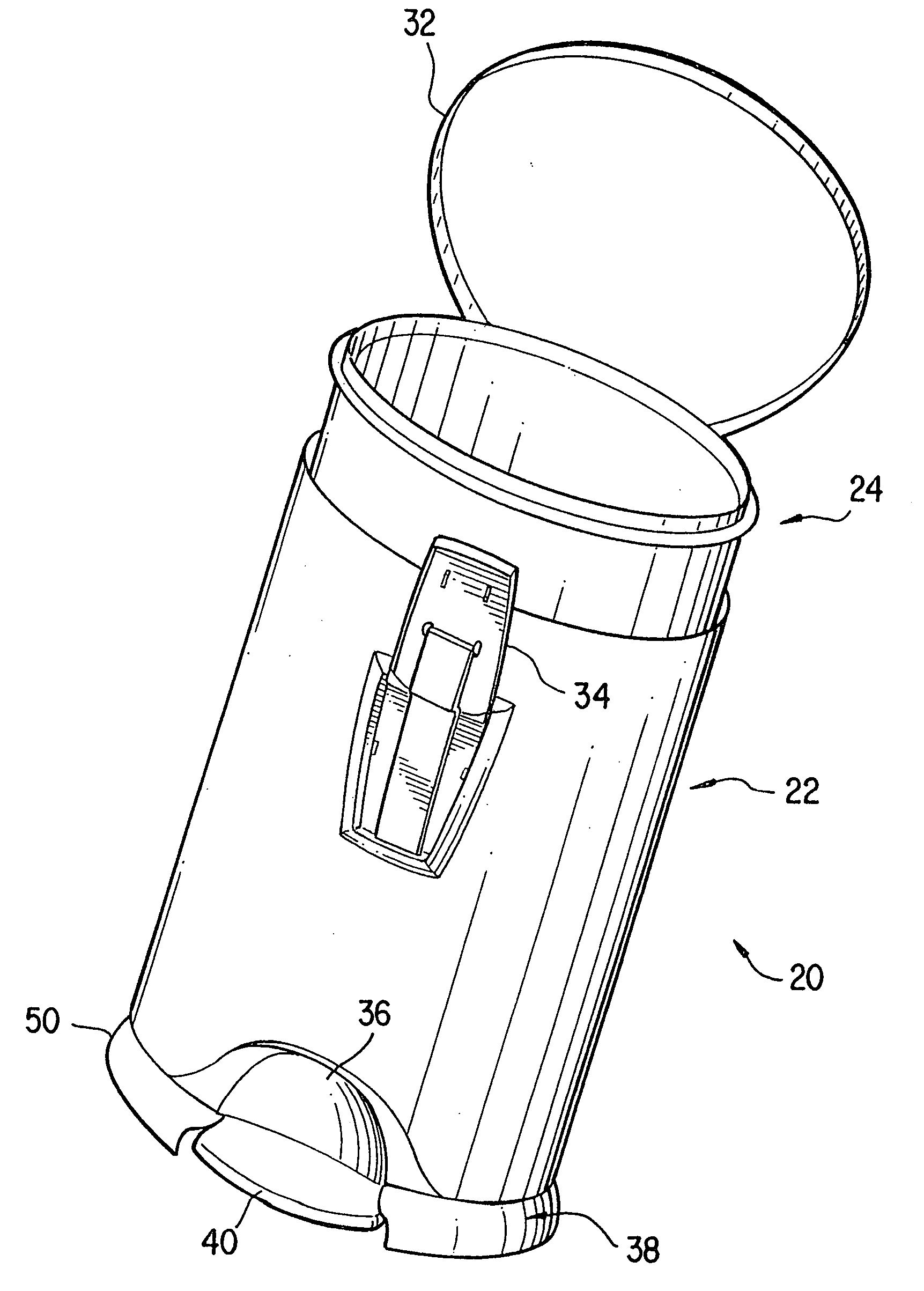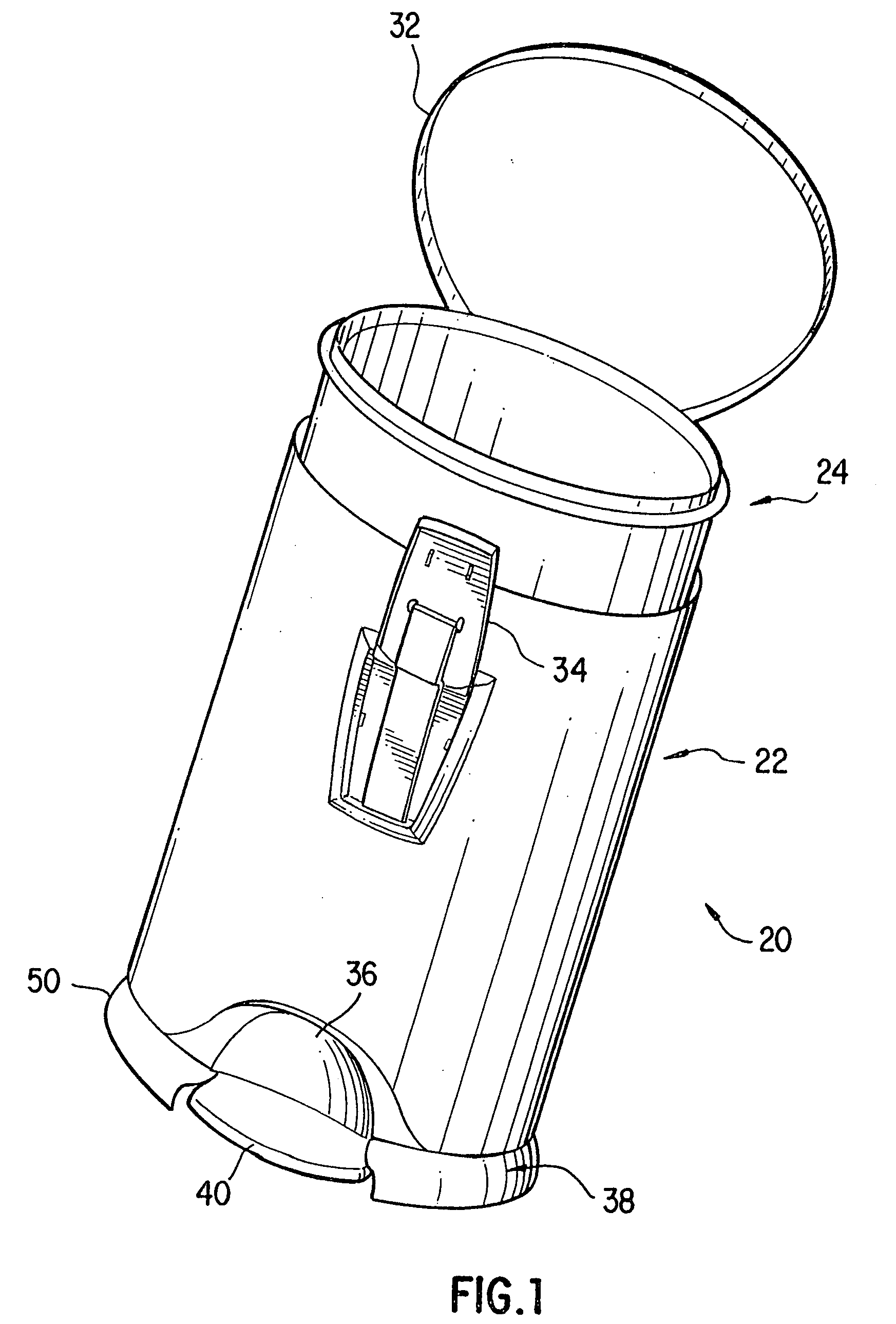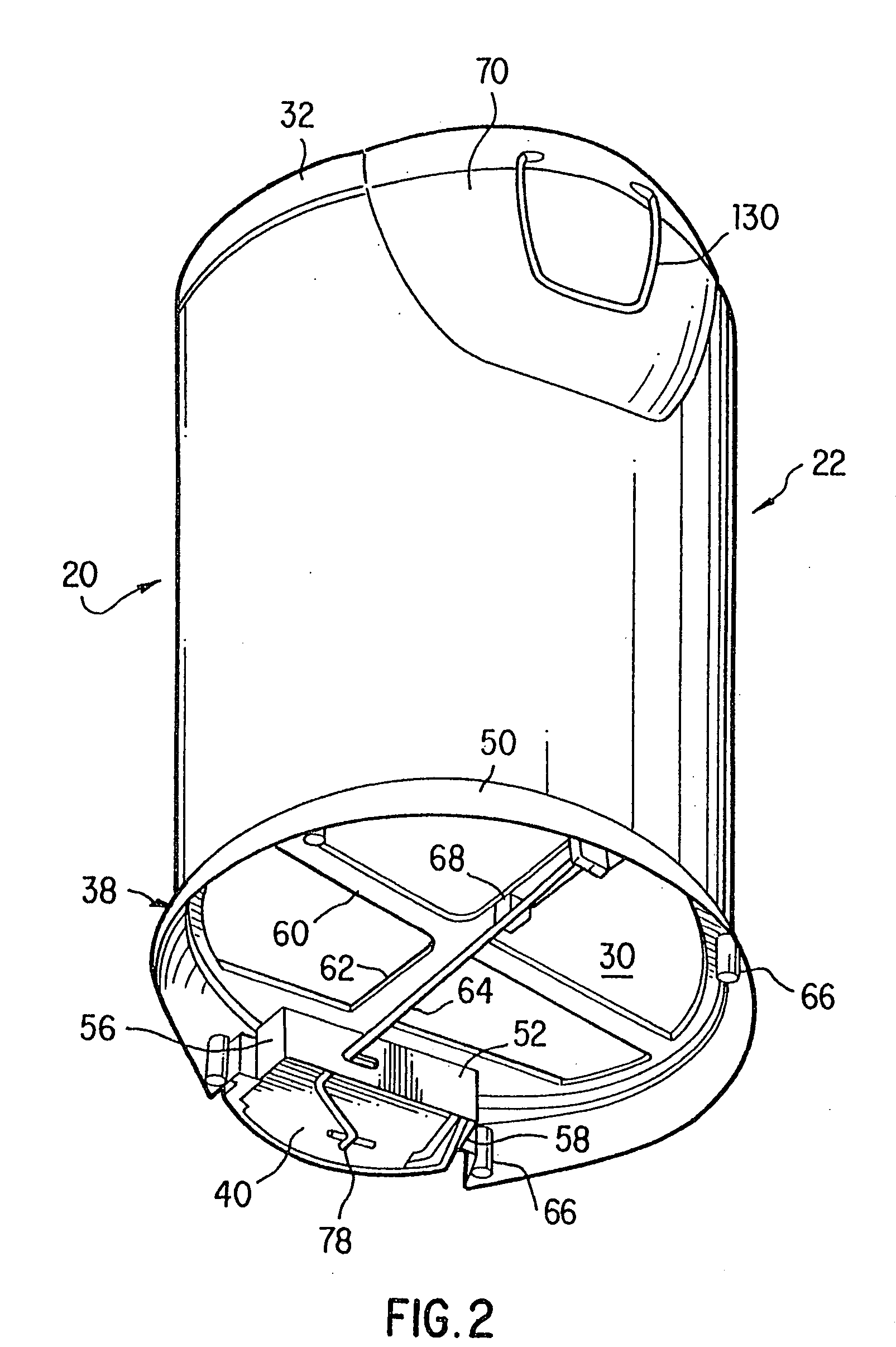Trash can assembly
a trash can and assembly technology, applied in the field of household items, can solve the problems of inability the internal liner is not easy to be smashed, and the outward extension of the foot pedal is prone to being inadvertently kicked, so as to improve the ability to control the opening, improve the effect of the step pedal, and reduce the prone to being kicked
- Summary
- Abstract
- Description
- Claims
- Application Information
AI Technical Summary
Benefits of technology
Problems solved by technology
Method used
Image
Examples
Embodiment Construction
[0035] The following detailed description is of the best presently contemplated modes of carrying out the invention. This description is not to be taken in a limiting sense, but is made merely for the purpose of illustrating general principles of embodiments of the invention. The scope of the invention is best defined by the appended claims. In certain instances, detailed descriptions of well-known devices and mechanisms are omitted so as to not obscure the description of the present invention with unnecessary detail.
[0036]FIGS. 1-7 illustrate one embodiment of a trash can assembly 20 according to the present invention. The assembly 20 has an outer shell 22 and an inner liner 24 that is adapted to be retained inside the outer shell 22. As shown in FIGS. 3, 4 and 7, the liner 24 is a container that has an elongated indent 26 provided in the side wall 28 extending upwardly a short distance from the bottom 30 of the liner 24.
[0037] The outer shell 22 is a generally cylindrical shell ...
PUM
 Login to View More
Login to View More Abstract
Description
Claims
Application Information
 Login to View More
Login to View More - R&D
- Intellectual Property
- Life Sciences
- Materials
- Tech Scout
- Unparalleled Data Quality
- Higher Quality Content
- 60% Fewer Hallucinations
Browse by: Latest US Patents, China's latest patents, Technical Efficacy Thesaurus, Application Domain, Technology Topic, Popular Technical Reports.
© 2025 PatSnap. All rights reserved.Legal|Privacy policy|Modern Slavery Act Transparency Statement|Sitemap|About US| Contact US: help@patsnap.com



